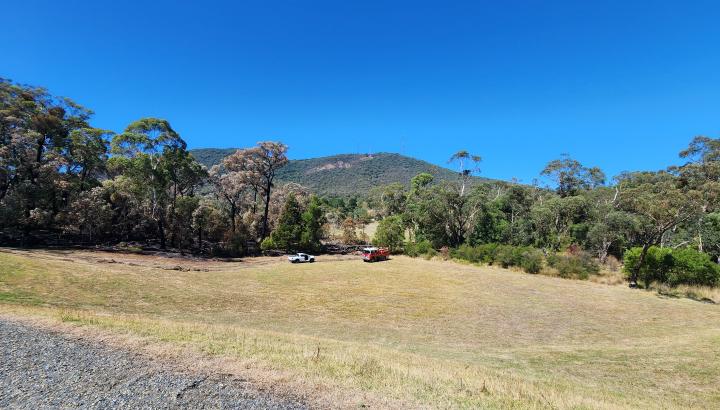
Restoring habitat after Montrose fire
When fire tore through Montrose in March 2025, it destroyed and damaged homes, scorched bushland, damaged wildlife habitat and disrupted planned restoration work. Melbourne Water is working alongside local partners to restore vital habitats, protect biodiversity and reconnect the landscape for native species.
Why this site matters
Fussell Road Retarding Basin is critical for flood mitigation and managing flows into Bungalook Creek. It also serves as a stepping stone for native fauna between scattered bushland and Mount Dandenong National Park. Together with Dr Ken Leversha Reserve and Montrose Reserve the basin forms a key habitat corridor linking the Dandenong Ranges via Bungalook Creek. The site is one of Melbourne Water’s Sites of Biodiversity Significance and supports species including the threatened Powerful Owl and several endangered and vulnerable plant communities.
Damage and changed plans
The fire caused extensive vegetation loss across the corridor and forced Melbourne Water to pause works that had been due to begin the same month. The original project focused on weed control and native revegetation along the riparian corridor. Once the site was declared safe, Melbourne Water reassessed priorities and committed extra resources to enhance post-fire recovery.

What the expanded recovery includes:
-
Intensive weed management to prevent invasive species from taking hold
-
Support natural regeneration so surviving native plants can recover
-
Targeted revegetation where natural recovery is unlikely supplementary planting may be required, including species such as tree ferns
“We want to give nature a helping hand and encourage the wildlife that lost their homes in the fire to return,” said Sue Jackman, Melbourne Water Executive General Manager Service Delivery. “This vegetation work will give native species the best chance to return and thrive for years to come.”
Community partnerships and monitoring
Community groups are central to this recovery effort. Melbourne Water is working closely with Yarra Ranges Council through the Liveable Communities, Liveable Waterways program, and with local volunteers from the Mount Evelyn Environment Protection & Progress Association (MEEPPA) and the Montrose Environmental Group. These partners are helping with on-ground bush regeneration, site care and wildlife monitoring to track recovery outcomes.
Timeline and outcomes
The recovery program will run through to mid-2028, giving native plants time to re-establish and strengthening the habitat corridor for wildlife movement and resilience. The work aims to reduce weed pressure, rebuild native vegetation structure and support the return of species that depend on connected bushland.
The bigger picture
Restoring Fussell Road Retarding Basin and its neighbouring reserves is about more than vegetation: it’s rebuilding the ecological links that let wildlife move, breed and adapt across the landscape. The combined effort of Melbourne Water, council and the local community will help ensure the area recovers stronger and more resilient than before.
ENDS.
Media contact:



